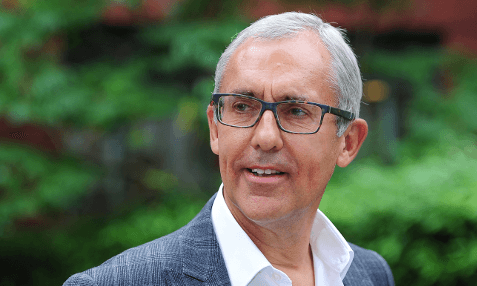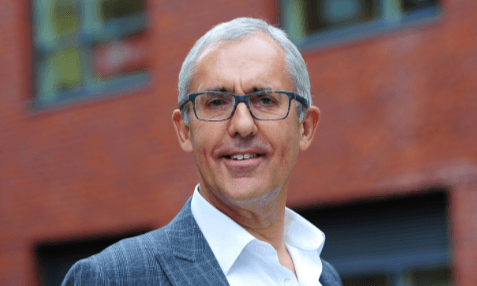 October marks the 20th anniversary of the commencement of the General Medical Council (GMC) disciplinary proceedings against Bristol cardiac surgeons Mr James Wisheart and Mr Janardan Dhasmana and the Chief Executive of the United Bristol Healthcare NHS trust, Dr John Roylance. The GMC launched its investigation into 53 operations on children who underwent surgery at the unit in which 29 patients died and 4 who were left brain injured.
October marks the 20th anniversary of the commencement of the General Medical Council (GMC) disciplinary proceedings against Bristol cardiac surgeons Mr James Wisheart and Mr Janardan Dhasmana and the Chief Executive of the United Bristol Healthcare NHS trust, Dr John Roylance. The GMC launched its investigation into 53 operations on children who underwent surgery at the unit in which 29 patients died and 4 who were left brain injured.
The proceedings focused on the surgeon’s mortality rates for the arterial switch and atrioventricular (AV Canal) operations. The hearings lasted 63 days – at the time the longest in the GMC’s history – and resulted in findings of serious professional misconduct against all three. Wisheart was struck off and Dhasmana suspended from carrying out paediatric cardiac surgery for three years, but cleared to continue adult cardiac surgery. Chief Executive Roylance fell under the GMC’s jurisdiction as a qualified doctor (a radiologist) and was also struck off.
Wisheart and Dhasmana were found to have lacked insight and to have demonstrated flawed behaviour, notably in relation to teamwork and leadership, and in their dealing with patients. They failed to recognise that their performance lagged behind that achieved by other units and failed to take steps to address their shortcomings. Wisheart, the children’s heart unit leading surgeon, also held the position of Medical Director of the hospital Trust – a dual role involving an obvious potential conflict.
The buck stopped with Roylance. Although the one supposed to be in charge the GMC found that he effectively let the doctors just get on with it. He had failed in his responsibility as a doctor to intervene to ensure the safety of patients. He insisted he knew nothing of any problems: “I was never put in a position to prevent any avoidable deaths.”
Roylance was the only one of the three doctors who appealed the GMC decision. He claimed to the Privy Council that the GMC chairman, Sir Donald Irvine who presided over the case, had been biased against the Defendants because his own grandson was suffering from a heart condition at the time of the hearing. His lawyers also argued that he was acting as an administrator rather than a doctor, and so should not be disciplined in his capacity as a doctor. The appeal failed.
A recurring theme of both the GMC and the Public Inquiry that followed was the lack of detailed consideration given to those children who had survived surgery at the unit, but had sustained brain damage and other non-fatal injuries. We estimated that between 30 and 40 children had suffered serious harm over the 12-year time span subsequently covered by the Public Inquiry. No data has ever been produced to enable us to establish the true incidence of non-fatal injuries (morbidity) among those who had survived 30 days post-surgery despite the fact that these children had received neurological intervention and had to return to Bristol for their continuing cardiological care. These unfortunate parents and children became the ‘forgotten families’.
After the GMC announced the scope of the disciplinary investigation, we were concerned on behalf of these families that the hearing would primarily focus on 30 day mortality. Children who survived 30 days but suffered brain damage did not form part of the charges against the 3 defendants. We therefore issued judicial review proceedings in an effort to force the GMC to widen the scope of its investigation to rectify this omission. The High Court refused the application and declined to interfere with the ambit of the GMC investigation. The hearings began on 14 October 1997 and concluded on 29 May 1998 after hearing from 67 witnesses at a reported cost of £2.2m.
The incidence of neurological injury was also to receive scant attention at the subsequent Public Inquiry which was announced in June 1998 in the wake of the GMC’s findings.
There was a view at the time that the Public Inquiry should have preceded the GMC hearings to ensure that all issues could be investigated before decisions could be made as to the individuals found to be culpable and who should therefore face disciplinary proceedings. It was felt, rightly, that the problems at the unit were systemic and not confined to the two surgeons performing the operations at the hospital. GMC charges did not proceed, for example, against any of the cardiologists or anaesthetists at the unit.
Although the Public Inquiry, which focused on the Bristol unit’s performance over the period 1982 to 1984, concluded that up to 35 children had died as a result of inadequate care, we calculated by extrapolation from the available data that in fact as many as 170 might have survived if they had been treated elsewhere at other units with a superior safety record. As stated above, we never knew the numbers of the children who had survived surgery but suffered brain damage or other serious injury. Even today, 20 years later, although cardiac surgery has led the field in publication of data, there is no centralised collection of data on morbidity in children undergoing heart surgery and the only measure of success or failure of a surgeon or unit is still 30 day mortality.
As Laurence Vick wrote in his recent article ‘Two Decades On’, although many improvements have been made in terms of informed consent, the duty of candour, regulation and audit, the fear is that many of the lessons from the Bristol scandal of the 1990’s have not been learned and we are still seeing a lack of transparency and problems at other units as well as the stifling of whistleblowers who wish to raise concerns.
Laurence Vick of Enable Law represented the families affected by the Bristol children’s heart surgery scandal at the Bristol Royal Infirmary Public Inquiry which resulted in the Kennedy Report of 2001. Laurence has become a central figure in child heart surgery litigation – the ‘go-to lawyer for complex cardiac cases’ (Chambers/Legal 500 guide) – and he and his team continue to work on behalf of those affected by failings at cardiac units across the country including those at Bristol again and Leeds.


















